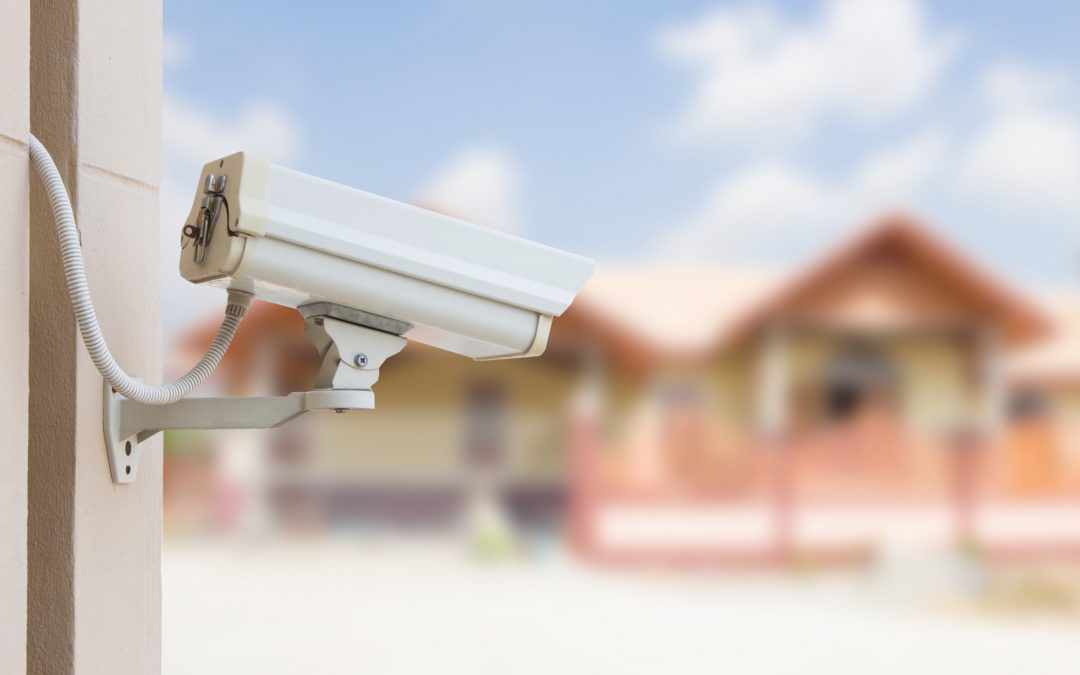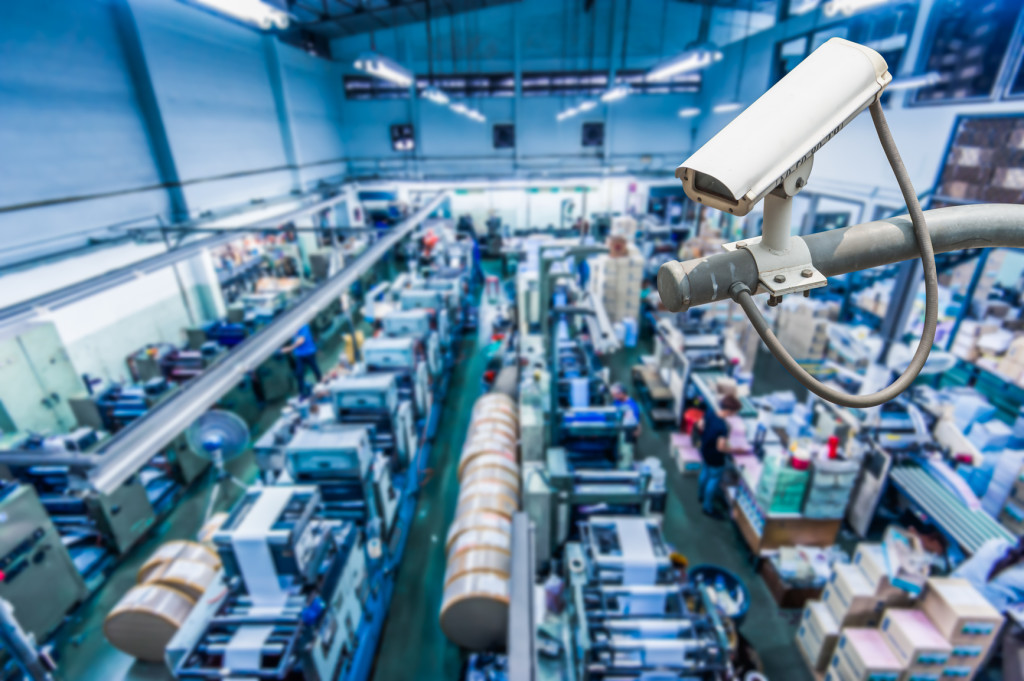This is part 2 of our 2 part series (part 1 on home alarms here) where we interview John McMenamin – owner of Protec Security and Alarms in Auckland
Our interview covers both residential CCTV systems and commercial CCTV setups – click here to jump straight to the commercial discussion
Residential CCTV Systems
SS: CCTV has traditionally been for commercial applications so I guess we’re seeing a lot more coming through for more popular domestic use. Aside from the decrease in price do you think there’s many other reasons for their increase in popularity in homes?
John: Yeah, the definite drop in price has seen people put them in domestic situations and also the popularity of the internet now where you can whack a webcam anywhere and view it online. That’s been adapted to the security industry where you have cameras inside houses looking at babies and dogs and also intruders can be put through to monitoring companies now.
It’s getting more popular.
SS: You mentioned Protech specializes in one particular brand of security cameras in New Zealand. Can you tell me a little bit about that particular brand?
John: Yeah, we use Hikvision and Sony both because they’re good and very well priced but there’s a lot of product out there and it’s changing monthly so we may sort of revisit that again.
SS: Now are there any brands that tend to lend themselves better to home versus commercial applications?
John: There are a lot of very expensive cameras that are used commercially and in schools ,they are just over priced for a domestic situation.
But it’s more to do with being robust and handling the weather if they’re outside, maintaining good color definition long term. But they are getting cheaper and better so a lot of the top specs you’re finding in cheaper cameras now, so it pays to know what you’re looking for, that’s all.
Definitely cheaper options.
SS: Now you mentioned sort of the maintaining the color long term, what’s the average life of one of these residential cameras?
John: Well black and white will last probably eight years. Color ones – less because of the color gradient weakening, the sun takes out the color. They are changing all the time and getting better so in two or three years time we’ll be getting very, very good cameras very cheaply.
SS: Now what are your top selling CCTV systems for home use?
John: The top selling camera system is two cameras outside, or one outside and one inside. Outside camera gets the car on the driveway, number plate On the inside usually in the hallway or a situation where you can see what’s happening inside.
SS: Now what sort of CCTV systems would you recommend for a standard, three bedroom, single story home? What are the sort of costs and how would this differ from a commercial, retail or storage system warehouse?
John: There’s not a lot of difference nowadays. Basically you have a DVR, which is like a little computer that hooks up to the internet and a camera that patches into that. Two cameras seems to be the way to go for domestic situations but we have had situations where we’ve put six or eight in all around the house, depending on the customers requirement. But you want to identify someone that’s there, get a good headshot if you can.
SS: Now talk to me a little bit about monitoring costs for the CCTV as well
John: The monitoring is basically the alarm being monitored because you need to be triggered in some way for the monitoring company to patch in and look at the cameras.
So that has to go hand in hand with CCTV. It’s only another $5 a month where you monitor the CCTV which means if the alarm goes off they’ll hook in and look at the cameras and maybe call you or the police.
Commercial CCTV Systems
SS: Traditionally it’s been banks and large retail, what sorts of business are you finding are using CCTV these days, John?
John: The price has dropped to a state now that basically anyone that’s in business is putting CCTV in to watch staff, customers or intruders
SS: Do you recommend IP or analog systems or does it depend on the situation, what’s the trend?
John: It’s again prices dictating it. Analog has been the traditional way of doing it. IP was high end at one stage but the price is dropping now. Definitely better as it’s a digital picture all the way through. In the future IP would be the way to go because the price has dropped low enough to make analog obsolete
SS: I guess it’s old technology now isn’t it, analog?
John: Yeah, getting that way but still some people prefer it because they can’t afford IP.
SS: Resolution camera lens discussion. What sort of resolution do we need to see faces and license plates?
John: Depends on the lighting as well, it’s a hard question
Generally most cameras will get you a decent headshot, off the shelf cameras that is, and car number plates are hard to get. At night time and when it’s wet and raining you will need to spend money to get good quality.
SS: When would you install a hardwired versus a wireless security camera solution at the moment?
John: Hardwired is always the best way to go. Can’t really beat it. Only use wireless if you can’t get a wire there, in a remote area. They are getting clever where you can get wireless solar powered cameras now which will be the future. It’s hooking into the wifi system for installation, that’s all in its infancy as well.
SS: What’s your view on single cameras which record onto SD cards, do you recommend people install these and are they a good option for small businesses?
John: Once again it’s very price oriented. If you are trying to catch someone they have hunting cameras which record onto cards and you’ll get a little bit of footage, motion sensor operated.
They have their place but yeah, it’s just a lot of time taking cards in and out and making sure they’re going to be working because you have no way of checking if they have broken down.
SS: Comes down to cost again doesn’t it?
John: It’s all to do with the cost for cameras.
SS: Obviously surveillance is a good deterrent John, through your experience how often is the footage actually being used to catch crooks or dodgy staff?
John: Catching staff is never a problem because they are sort of captive, they work there. They’ve got nowhere to go, you’ve got the footage and that’s basically it.
Getting burglars and intruders is another thing as well. I have heard of people putting rewards up on Facebook and catching people and also catching neighbors that have broken in and that sort of stuff. Generally they need to get the police involved, that’s another thing again.
SS: Last question, being in the security industry for ten years as long as you have, you must have come across a few interesting crazy stories about break ins or security system success stories. Did you want to share anything, you know, before we wrap up?
John: Just a recent one, we caught someone on Facebook with cameras, someone offered a reward, $1000, and his mate popped him in. So that was a success story. It’s definitely the cameras which are the best way of catching people nowadays.
SS: Once you’ve got a mugshot it’s pretty hard isn’t it?
John: Yeah.
SS: Also with social media these days.
John: So it’s the way things are going. You turn a lot of burglaries, people phoning up and thanking us for installations they’ve got a few muddy footprints on the back door and it’s gone off and the burglars have run off
It’s good feedback
SS: So that’s the future, get your CCTV installed.


